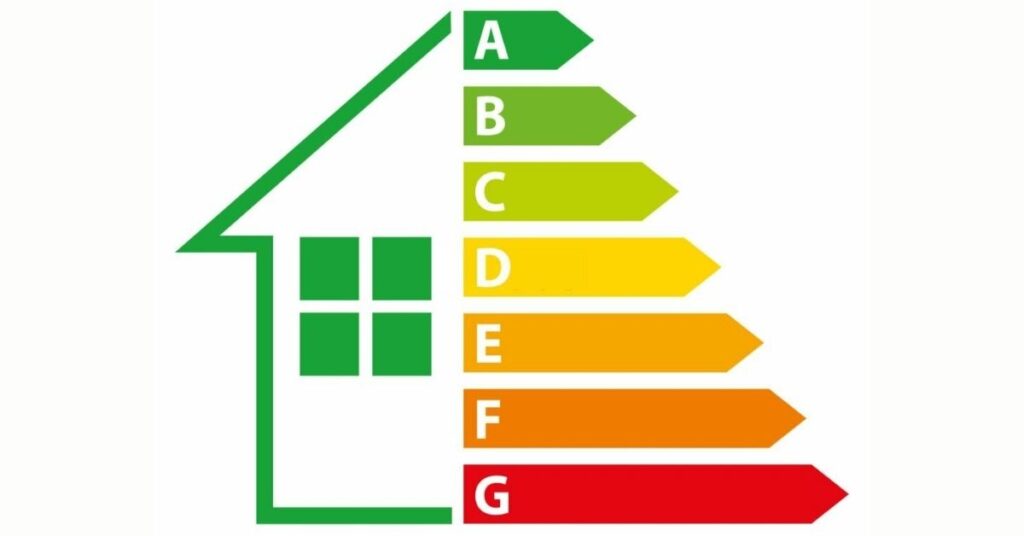Energy Performance Certificates (EPCs) Explained
Energy Performance Certificates (EPCs) serve as crucial documents in today’s real estate landscape. Essentially, an EPC provides a comprehensive overview of a property’s energy efficiency, shedding light on its environmental impact and potential utility costs. This introductory section aims to define EPCs, elucidate their significance, and explore the legal landscape that mandates their issuance.
In essence, an EPC is a document that evaluates and rates a property’s energy efficiency. This assessment involves a thorough analysis of various factors, including insulation, heating systems, lighting, and the integration of renewable energy sources.
The ultimate goal is to provide property owners, buyers, and tenants with valuable insights into a property’s energy consumption and carbon emissions. This information is not only crucial for individual stakeholders but also aligns with broader environmental and energy efficiency goals.
How Energy Performance Certificates are calculated
The calculation of an EPC involves a nuanced understanding of the factors that contribute to a property’s energy performance. Insulation, for instance, plays a pivotal role in regulating a property’s temperature, thereby influencing energy consumption. The assessment considers the type and quality of insulation in walls, roofs, and floors.
Heating systems are another critical component. The type of heating system, its efficiency, and how it is controlled all impact the overall energy performance of a property. Similarly, lighting is assessed for its energy efficiency, considering factors such as the type of bulbs used and the overall lighting design.
The integration of renewable energy sources is also taken into account. Properties that harness solar panels, wind turbines, or other renewable technologies receive favorable ratings. Energy assessors, who are professionals certified for this purpose, play a central role in conducting these assessments. Their qualifications and certification ensure a standardized and reliable evaluation process.
EPC Rating System
Understanding the energy efficiency scale is pivotal in interpreting EPCs. The scale ranges from A to G, with A being the most energy-efficient and G being the least. This grading system provides a clear benchmark for comparing different properties. For instance, a property with an A rating is more energy-efficient and environmentally friendly than one with a G rating.

These ratings have tangible implications. Beyond just environmental considerations, EPC ratings can impact the value of a property. Higher-rated properties are often perceived as more desirable, potentially commanding higher prices in the real estate market. Additionally, governments and municipalities may use these ratings to incentivize energy-efficient practices or penalize properties with poor ratings.
Obtaining an EPC
EPCs are not universally required for all properties. Typically, they are needed when a property is sold or rented out. In the case of residential properties, this applies to both houses and apartments. Commercial properties are also subject to EPC requirements.
The frequency of EPC assessments depends on the type of transaction and the regulations of the relevant jurisdiction. For example, in the UK, an EPC is required whenever a property is sold or rented out, and it is valid for ten years. However, exemptions and exceptions may exist, such as for listed buildings or temporary structures.
Displaying and Using EPC Information
Once obtained, EPC information becomes a valuable asset for property owners and prospective buyers or tenants. In many jurisdictions, it is a legal requirement to include EPC ratings in property advertisements. This transparency not only informs potential occupants about the energy efficiency of a property but also allows for easy comparisons between different listings.
Providing EPCs to potential buyers or tenants is another crucial step in the real estate transaction process. It empowers individuals to make informed decisions, considering not just the aesthetics and location of a property but also its long-term sustainability and associated utility costs. Moreover, EPCs provide recommendations for energy improvement, offering a roadmap for enhancing a property’s energy efficiency.
Common Misconceptions about EPCs
Despite their significance, EPCs are sometimes subject to misconceptions. One common misunderstanding is that EPCs are merely bureaucratic requirements without tangible benefits. In reality, EPCs play a pivotal role in promoting energy efficiency, reducing utility costs, and minimizing environmental impact.
Another misconception is that EPCs are solely about compliance. While regulations do mandate their issuance in certain situations, EPCs go beyond legal obligations. They serve as tools for individuals and businesses to contribute to broader sustainability goals, aligning with global efforts to combat climate change.
Future Trends and Developments
As the world grapples with environmental challenges and seeks sustainable solutions, EPCs are likely to evolve. Governments and regulatory bodies may introduce new standards and requirements to further incentivize energy-efficient practices. This evolution could also involve the integration of EPCs with smart home technologies, allowing for real-time monitoring and optimization of energy consumption.
The impact of EPCs on property market trends is another area to watch. As environmental awareness grows, properties with higher EPC ratings may become more sought after, influencing market dynamics. Additionally, financial institutions and investors might incorporate EPC ratings into their decision-making processes, considering the long-term sustainability and risk associated with different properties.
Case Studies
Real-world examples can illustrate the practical implications of EPCs. Consider a case where two similar properties are on the market, but one has a significantly higher EPC rating. The property with the higher rating may attract more potential buyers or tenants, showcasing the tangible impact of energy efficiency on market demand.
Examining cases where property owners implemented EPC recommendations and subsequently improved their ratings provides valuable insights. These case studies can highlight the feasibility and benefits of investing in energy-efficient upgrades.
Conclusion
In conclusion, Energy Performance Certificates are not just bureaucratic formalities; they are powerful tools for promoting energy efficiency and sustainability in the real estate sector. From their calculation, rating system, and legal requirements to their practical applications and future trends, EPCs are integral to informed decision-making in property transactions. We can also help you to give you information if you need an EPC certificate
As we move forward, a greater understanding of EPCs and their implications will contribute to a more sustainable and environmentally conscious real estate landscape. It is not merely about compliance; it is about shaping a future where energy-efficient properties are not just a choice but a necessity for a sustainable world. You may always contact with us if you have any queries.

